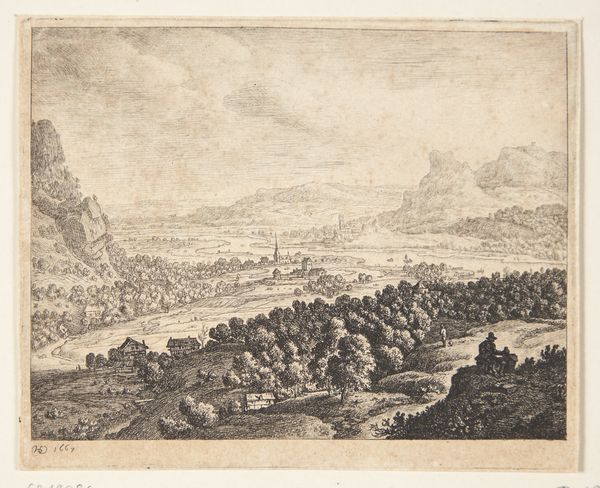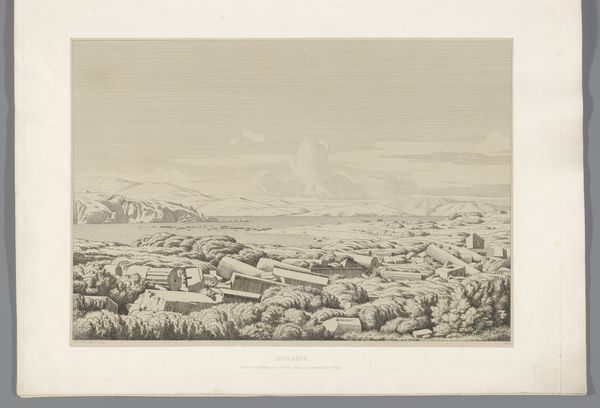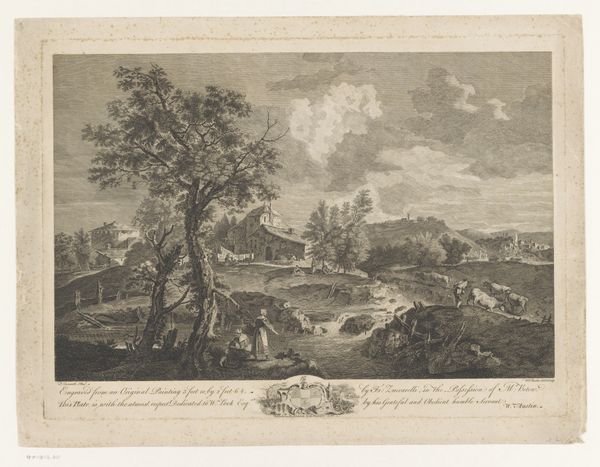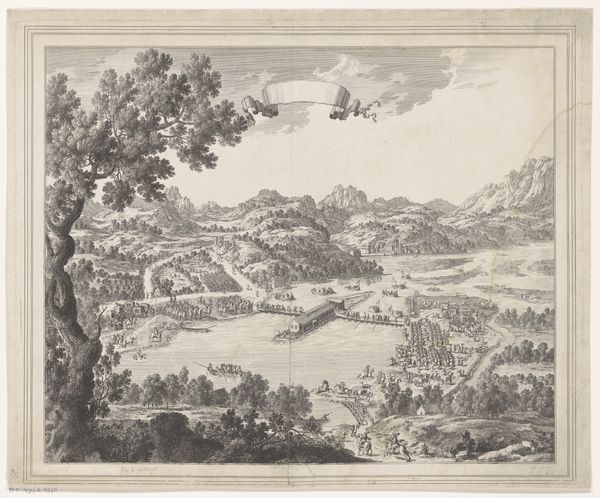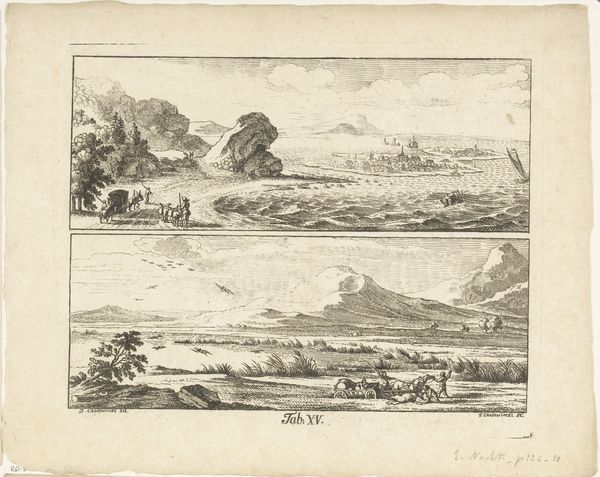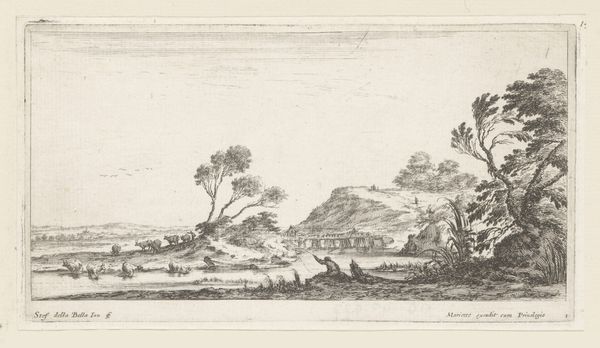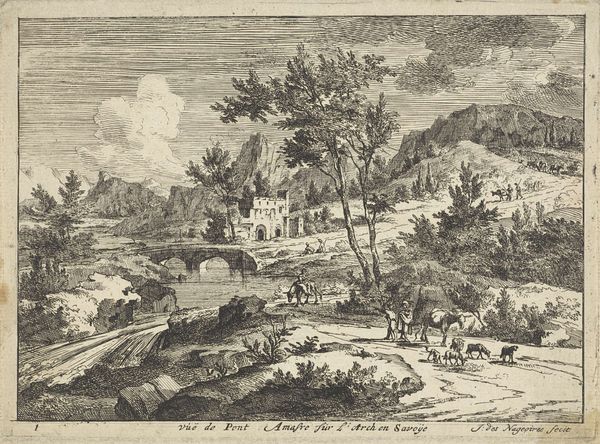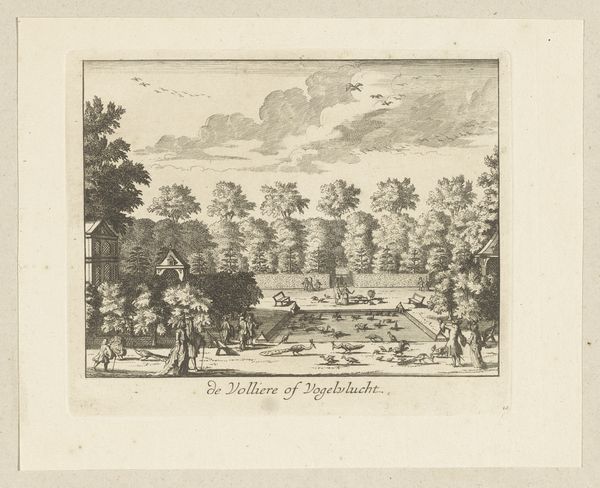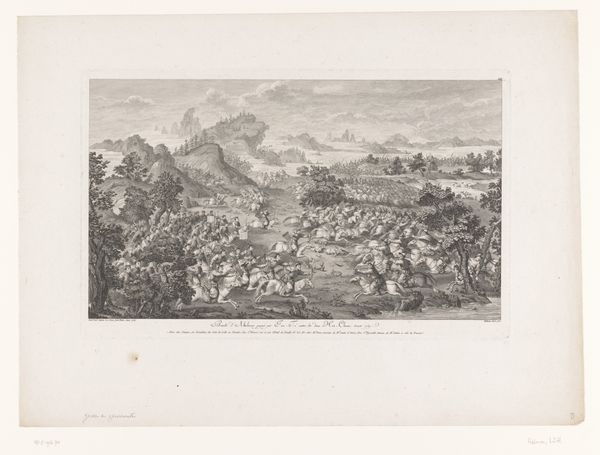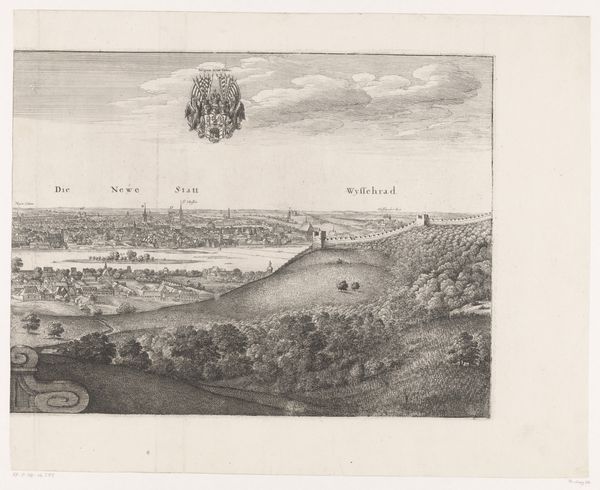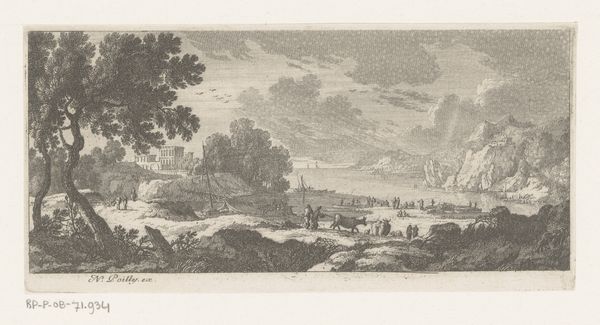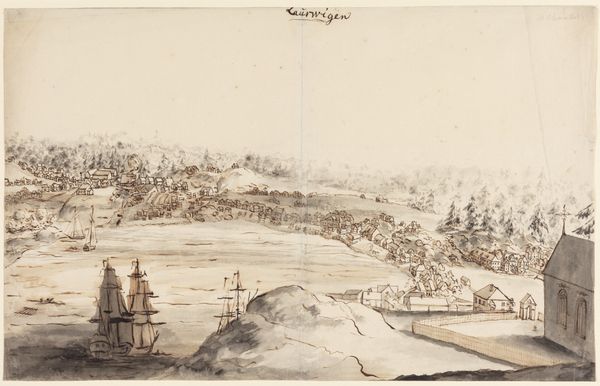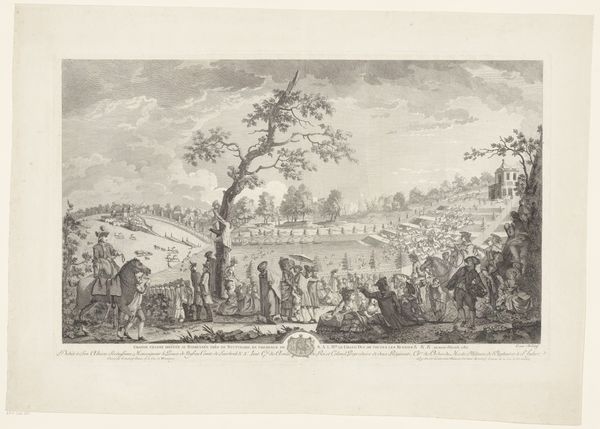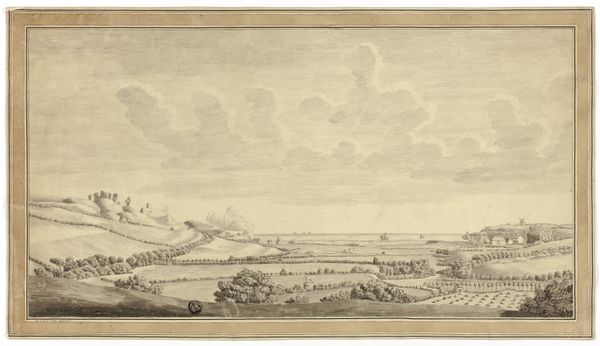
print, etching, engraving
# print
#
etching
#
asian-art
#
landscape
#
etching
#
perspective
#
cityscape
#
engraving
Dimensions: height 231 mm, width 337 mm
Copyright: Rijks Museum: Open Domain
Editor: This print, titled "Gezicht op Peking," from 1665, offers a detailed etching of Beijing. I'm struck by how the artist has balanced the grand scale of the city walls with the more intimate scenes of daily life in the foreground. How do you read this piece as a historical document? Curator: It's a fascinating example of how early modern Europeans visualized and understood non-European cities. Remember, prints like these weren’t necessarily about accurate representation; they served specific social and political functions. Who do you think this image was intended for, and what purpose might it have served? Editor: I imagine this print was circulated amongst European merchants and perhaps even the wealthy, back home in Europe? I'm guessing it catered to their curiosity about distant lands and possibly also fostered a sense of dominance. Curator: Exactly! This visual depiction of Peking played into existing European power dynamics. Notice how the print emphasizes the city’s fortifications, presenting Peking as both an impressive and perhaps potentially penetrable power. Consider also that visual tropes and styles common in European landscape traditions are superimposed on the depiction of the Chinese city. To what effect? Editor: So, the perspective, though appearing objective, is actually framing China through a very specific European lens and reflecting European strategic interests... It really changes my perspective on it! Curator: Indeed. The “objective” cityscape becomes a tool for shaping European perceptions and asserting a particular relationship to the East. This interplay between representation and power is critical to understanding such images. It challenges our assumptions about the neutrality of historical documentation. Editor: I'll never see these types of historical prints the same way. It makes you think about what narratives were being crafted.
Comments
No comments
Be the first to comment and join the conversation on the ultimate creative platform.
